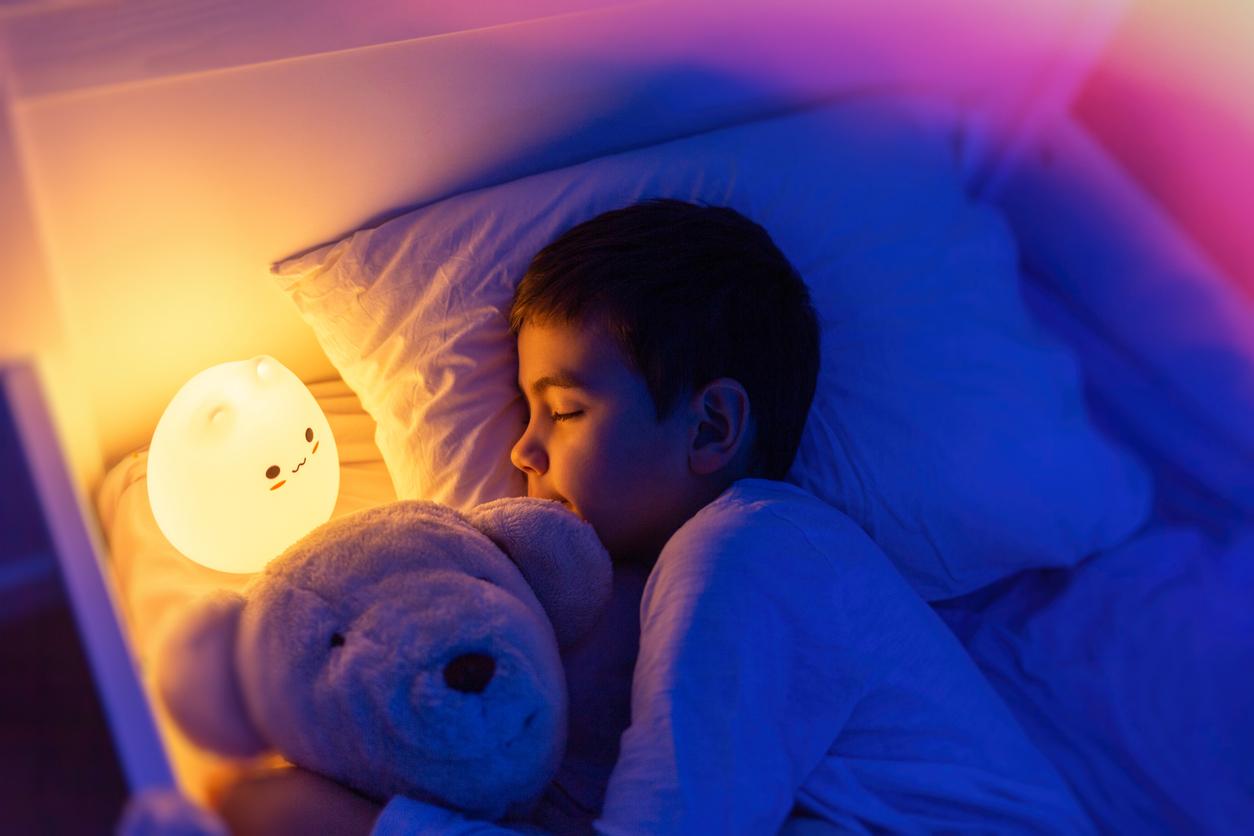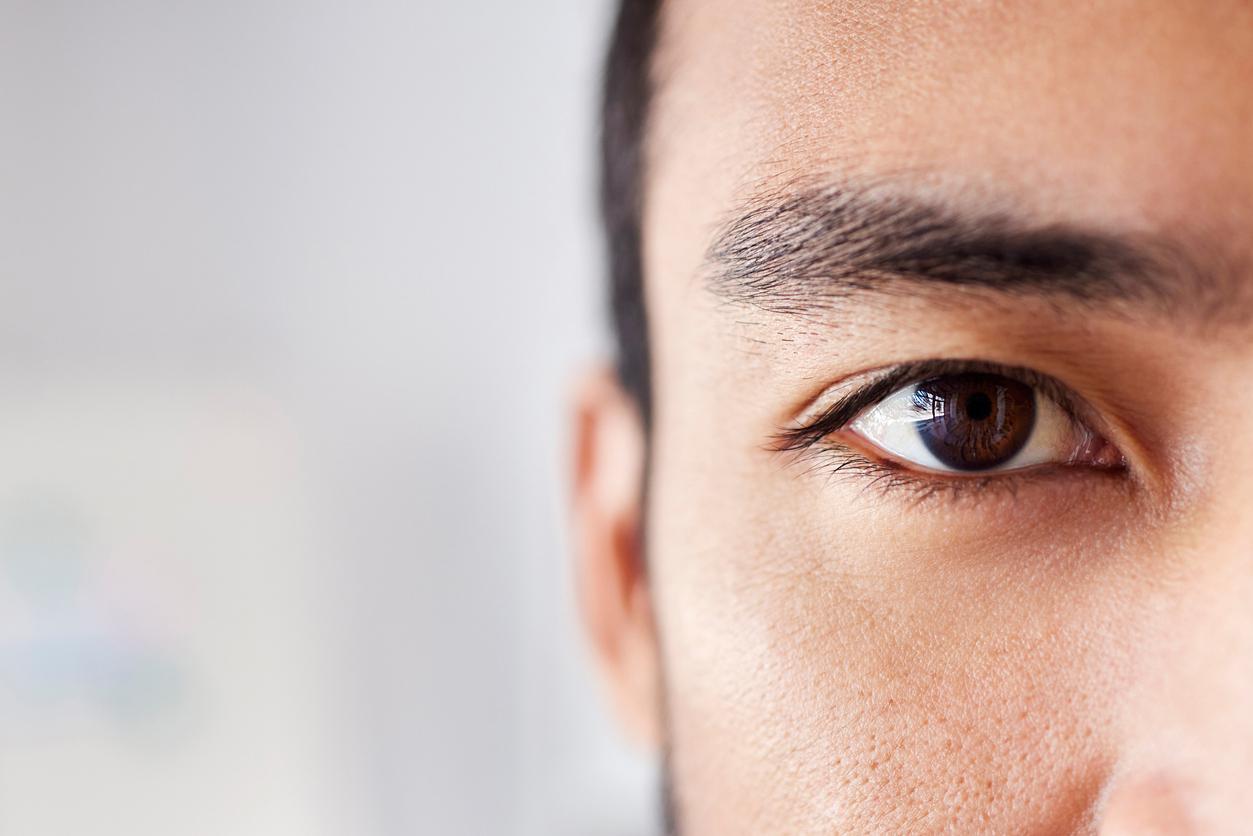According to a study carried out on flies, daily and prolonged exposure to the blue light that emerges from our electronic devices would have negative consequences on our retina and our life expectancy.

It is well known, screens are bad for your health. They make myopic, exciting and prevent sleep and are linked to anxiety and depression in adolescents. Recently, it has even been proven that spending a lot of time in front of a screen can change a child’s brain. Today, a new study published in the journal Aging and Mechanisms of Disease shows that prolonged daily exposure to blue light that emerges from phone, computer and home appliances could affect our longevity, even if it doesn’t shine in our eyes.
To reach these conclusions, the researchers looked at how Drosophila melanogaster flies responded to daily 12-hour exposures to blue light from LEDs, similar to the dominant blue wavelength in our electronic devices. They were able to notice that flies kept in light with filtered blue wavelengths showed damage to retinal cells and brain neurons compared to those kept in complete darkness. They also had more difficulty climbing the walls of their enclosure.
Moreover, while some flies used in the experiment were eyeless mutants, even the latter showed brain damage and locomotor disorders after being exposed to continuous blue light. Thus, beasts do not need to see the light to suffer from it.
Humans are subjected to increasing amounts of light in the blue spectrum
“The fact that light accelerated aging in flies initially surprised us a lot,” says Jaga Giebultowicz, professor of integrative biology at Oregon State University College of Science. “We had measured the expression of certain genes in old flies and found that stress response and protective genes were expressed if the flies were kept in light. We hypothesized that light would regulate these genes. Then we started thinking about what’s harmful to them in light, and we looked at the spectrum of light. It was very clear that while light without blue slightly shortened their lifespan, only blue light significantly shortened their lifespan.”
Natural light is essential to the circadian rhythm of the body and therefore to the production of hormones and cell regeneration in humans, recalls the researcher.
“There is evidence to suggest that increased exposure to artificial light is a risk factor for sleep disturbances and circadian disorders. With the predominant use of LED lighting and device displays, humans are subjected to increasing amounts of light in the blue spectrum since commonly used LEDs emit a high fraction of blue light. But this technology, even in most developed countries, has not been used long enough to know its effects throughout human life,” she continues.
Wear amber lens glasses in front of a screen
If these results are confirmed on humans, technologies and medicine should collaborate to try to counter the harmful effects of light. “The lifespan of human beings has lengthened considerably over the last century, as we have found ways to treat diseases and, at the same time, we spend more and more time with artificial light”, explains Eileen Chow, co-author of the study. “As science searches for ways to help people be healthier as they live longer, designing a healthier light spectrum could be a possibility, not just in terms of sleep, but in terms of overall health,” she continues.
“In the future, there may be phones that automatically adjust their display based on how long the machine perceives use. This kind of phone could be difficult to manufacture, but it would probably have a significant impact on health”, hopes Trevor Nash, first author of the study.
While waiting to be there, the researchers recommend wearing glasses with amber lenses when you look at a screen in order to filter blue light and protect your retina. What’s more, they remind you that it is possible to adjust the settings of your laptop or phone to block blue light emissions.
A change in the brain of the youngest
At the end of 2018, a large study conducted by the American Institutes of Health (NIH) had already noticed that children spending more than two hours a day in front of a screen obtained lower results in language and thinking tests than others. The first MRI tests have notably shown a difference in the brains of the little ones most exposed to screens, ie a premature thinning of the cortex, the cerebral bark which processes the information sent to the brain by the five senses. A modification normally “considered as an aging process”, according to the authors of this work.
In France, for prevention, the Minister of Health strongly advises against screens for children under three years old.
.

















